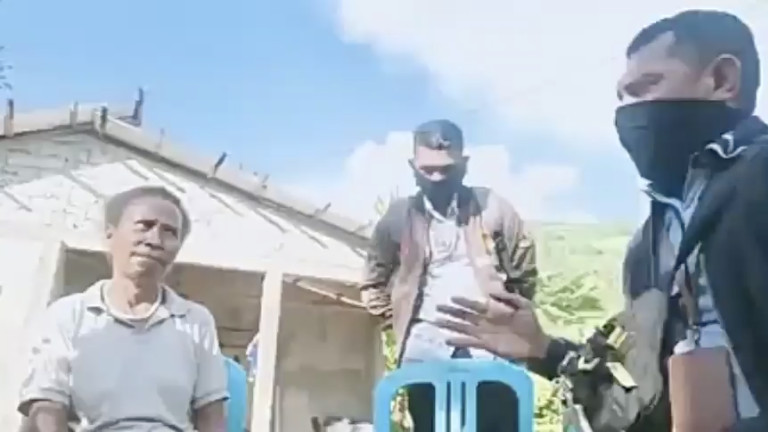Popular Reads
Top Results
Can't find what you're looking for?
View all search resultsPopular Reads
Top Results
Can't find what you're looking for?
View all search results‘God gave me 10 fingers to work’: NTT resident refuses govt COVID-19 aid in viral video
“[I want to] work for it on my own first. God gave me 10 fingers to work so I have to make the effort,” Salomi, an elderly resident of Alor regency, East Nusa Tenggara (NTT), said.
Change text size
Gift Premium Articles
to Anyone
A
n elderly resident of Alor regency in East Nusa Tenggara has refused to accept government-distributed staple food aid, saying that she would rather work for it on her own.
In a video that has gone viral on social media, Salomi Malaka, the wife of a farmer and mother of three, repeatedly refused aid in the form of a Prosperous Family Card (KKS), a card that can be used to purchase staple food. The government has been distributing the KKS to cushion the impact of COVID-19 on poor residents.
“[I want to] work for it on my own first. God gave me 10 fingers to work so I have to make the effort,” Salomi said in the video posted on Friday by Instagram user @baliaman_.
Nazamuddin, Alor regency's staple food aid distribution coordinator, confirmed that the events in the video occurred on Tuesday when aid distribution officials went to Salomi's house.
The officials visited her after Salomi, whose family is eligible for the aid, did not show up during the KKS distribution.
“We decided to visit her house so we can explain the staple food aid program that is being offered during the COVID-19 pandemic,” Nazamuddin said on Friday as quoted by kompas.com. “We initially insisted that she accept the aid, but she kept refusing.”
The officials then decided to return her KKS aid to the Social Affairs Ministry’s Poverty Management Directorate General, and gave her face masks that she can use when buying food at the local market instead.
Initially launched in February 2017, the KKS staple food aid – to be distributed from April to December – is set to cover 20 million poor Indonesians. On March 31, President Joko "Jokowi" Widodo announced that the KKS benefits would be increased to Rp 200,000 (US$13.96) per month per family from Rp 150,000.
The staple food assistance is a part of the government’s COVID-19 social safety net programs valued at Rp 110 trillion (US$6.7 billion), where other portions of the fund would be allocated for the family hope, preemployment card and free or discounted electricity programs. (mfp)










